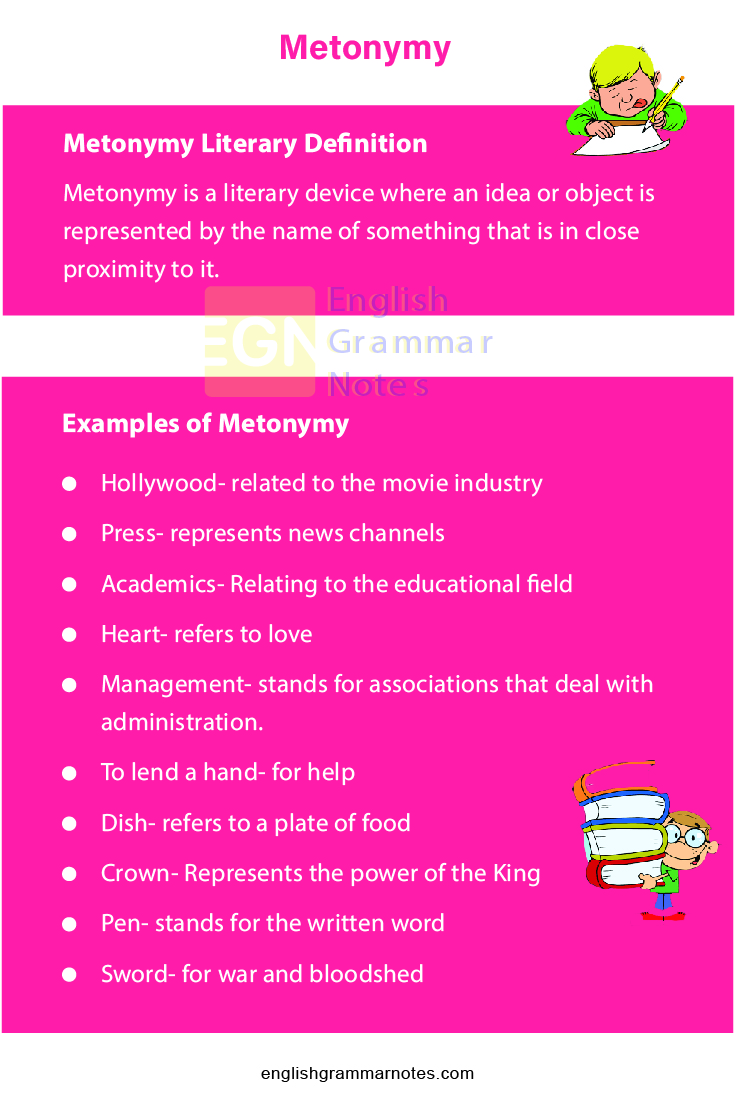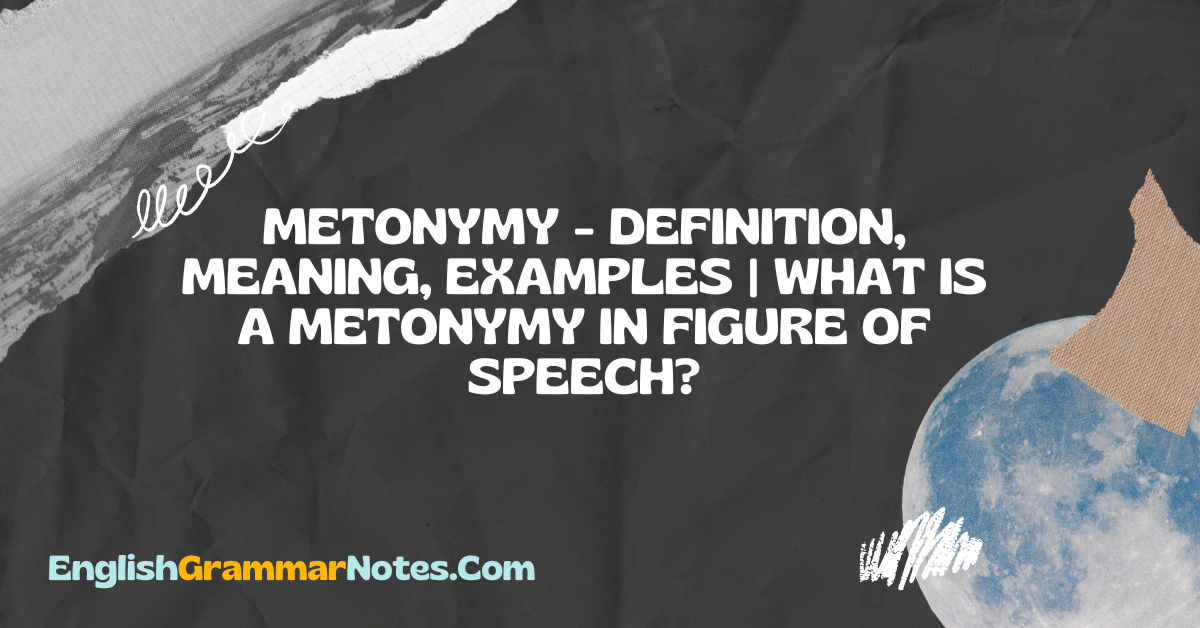If you are in search of ways to improve your writing, the use of figures of speech will surely be helpful. Figures of speech like metonymy will give deeper meanings to words and make sure that readers have their attention to what you write. In this article, we have included information on what is Metonymy, Definition & Meaning, and the Use of Metonymy in English all explained clearly.
- Metonymy Literary Definition
- 15 Examples of Metonymy
- Why use Metonymy?
- Synecdoche Vs Metonymy Vs Metaphor
- What is metonymy?
- Give examples of metonymy?
- What is the purpose of using metonymy?
Metonymy Literary Definition
Metonymy is a literary device where an idea or object is represented by the name of something that is in close proximity to it. Metonymy is a technique whereby a word or phrase stands in for another word or phrase. Metonymy has its origin in the Greek word “metōnymía,” which means “change of name.”
15 Examples of Metonymy
Metonymy is a figure of speech that comes in handy even in day-to-day conversations. Given below is a set of common examples of metonymy:
- Hollywood- related to the movie industry
- Press- represents news channels
- Academics- Relating to the educational field
- Management- stands for associations that deal with administration.
- Heart- refers to love
- To lend a hand- for help
- Dish- refers to a plate of food
- Crown- Represents the power of the King
- Pen- stands for the written word
- Sword- for war and bloodshed
- Lend me your ear- means to listen
- Silicon Valley- refers to the tech industry

Popular Metonymy
Given below are some of the most famous or popular examples of metonymy:
- He Got Game” (American film)
- “Hurtin’ (on the Bottle)” (song, Margo Price)
- “Guys and Dolls” (American stage musical)
As mentioned earlier, metonymy is most effective in literature.
Read More:
Why use Metonymy?
The use of metonymy can be helpful to you in different ways
- Metonymy helps develop creativity
- Helps make single words or phrases more powerful
- Metonymy Helps you to be more precise
- Metonymy adds flavor to your writing
- Gives deeper meaning to words and phrases
- Metonymy helps you to avoid repeating the same word.
Synecdoche Vs Metonymy Vs Metaphor
Metonymy is often confused with Synecdoche. Even though both appear to be similar there exist differences. Synecdoche is a literary device where a part of something stands for the whole. On the other hand where an object or idea is referred to by the name of something in close proximity to it. It is not part of the idea it represents.
Both metonymy and synecdoche can be linked to another literary device called Metaphor. The function of metaphor is to compare two distinct things or ideas using the words like or as. However, unlike metonymy and synecdoche, metaphor draws similarities between two different things that are unrelated.
FAQs on Metonymy
Metonymy is a literary device where an idea or object is represented by the name of something that is in close proximity to it. Metonymy is a technique whereby a word or phrase stands in for another word or phrase.
Examples of metonymy include
- Hollywood- related to the movie industry
- Press- represents news channels
- Booze- stands for alcohol
- Coast- related to the seaside
3. What is the purpose of using metonymy?
The use of metonymy has several benefits. These include: Metonymy helps develop creativity, makes single words or phrases more powerful, helps you to be more precise, and gives deeper meaning to words and phrases. On the whole, it adds flavor to what you write.
Conclusion
The use of metonymy is one of the easiest ways to improve your writing skills. The use of metonymy adds flavor to your writings. However, it is important to make sure that the words involved in the process depict a logical connection. Only then, does metonymy become effective. The use of an apt metonymy will surely add imagery and deeper meaning to what you write.
